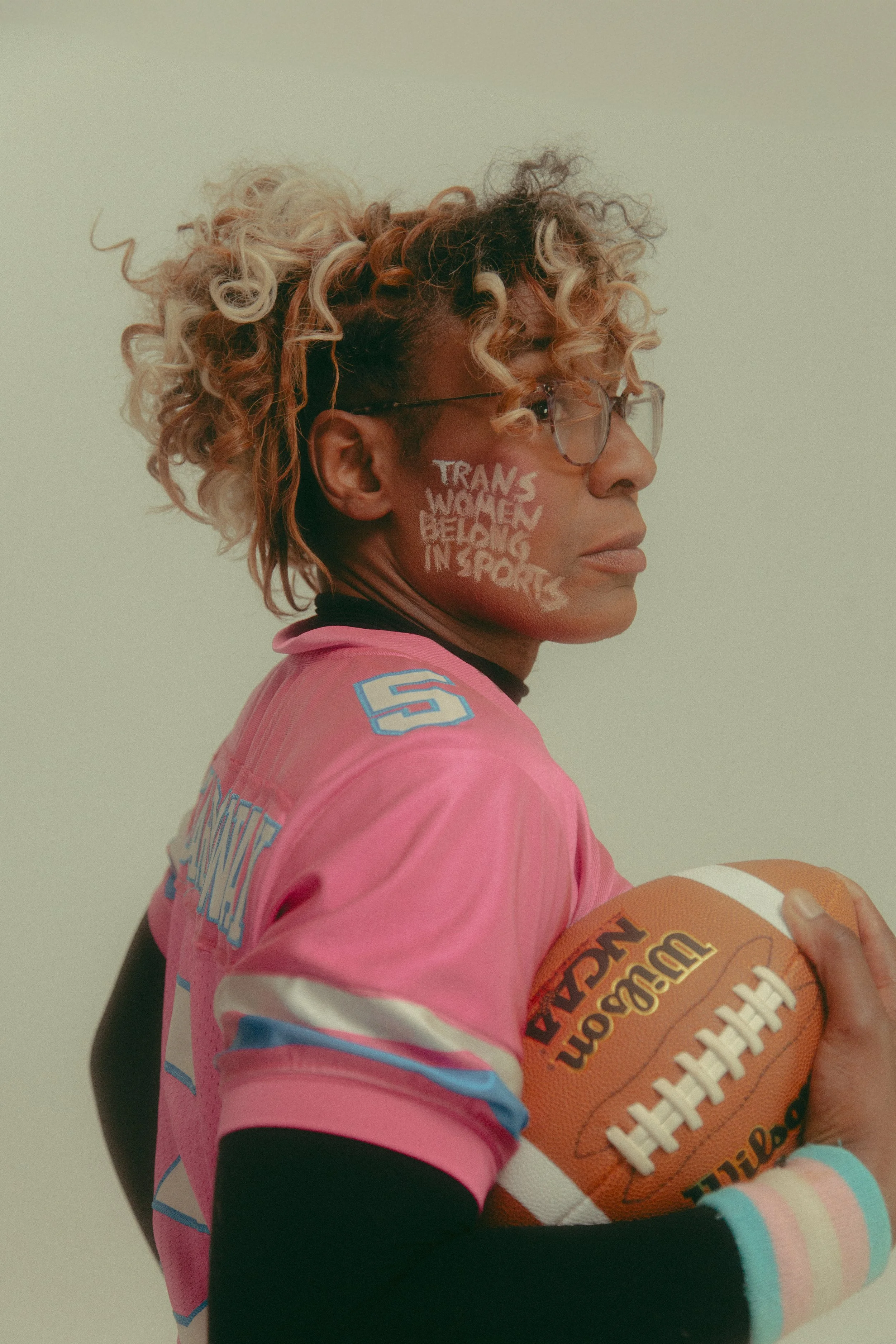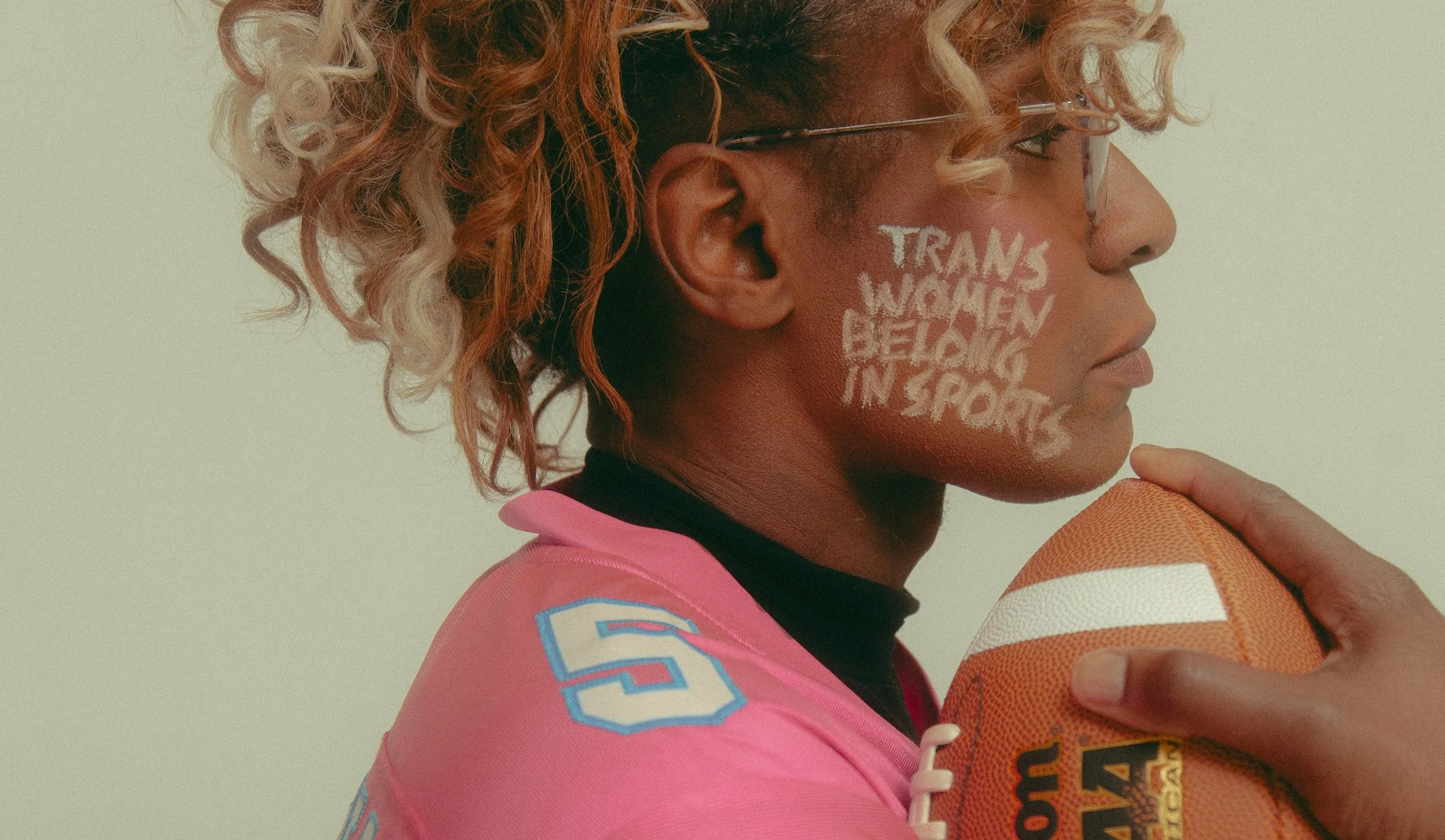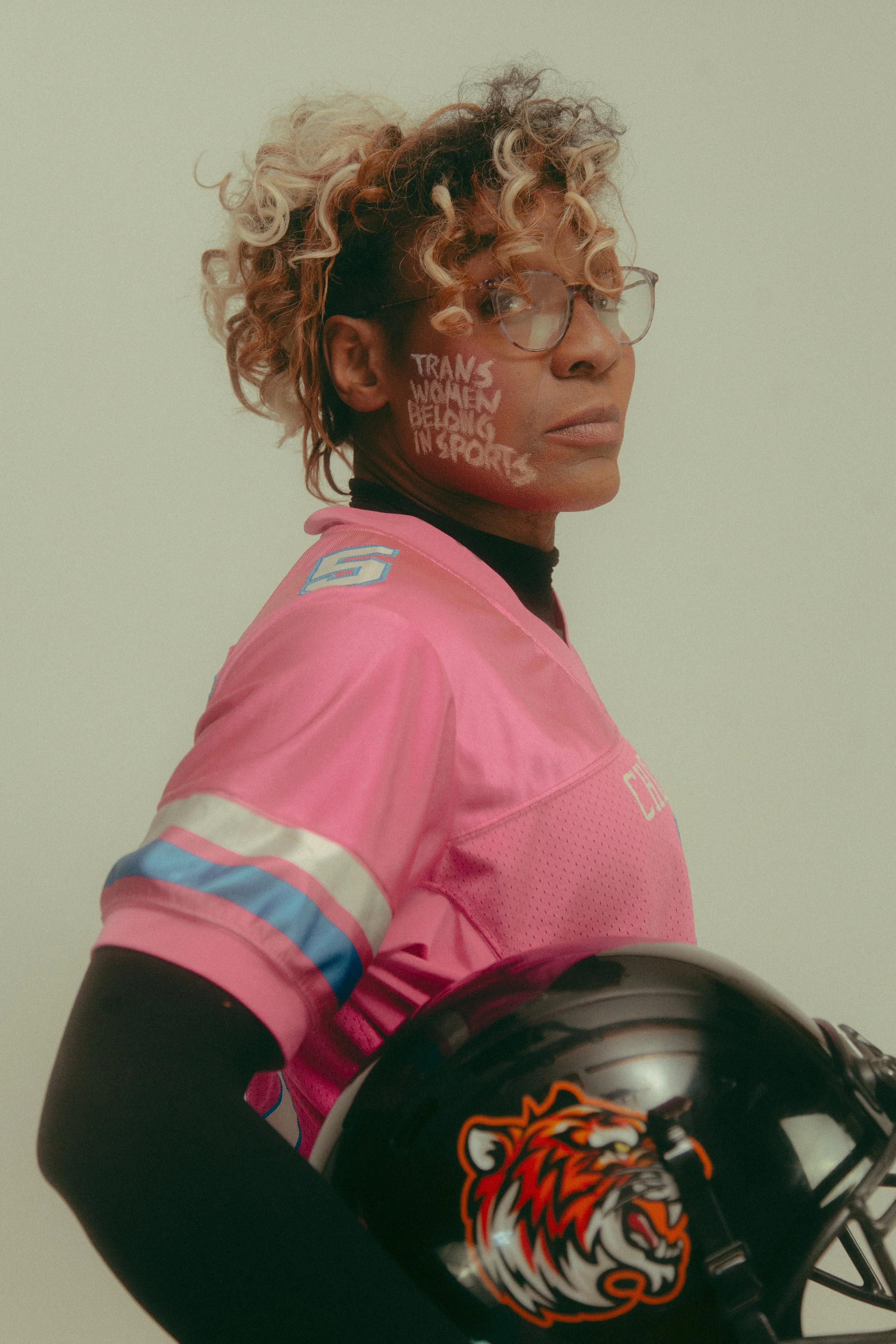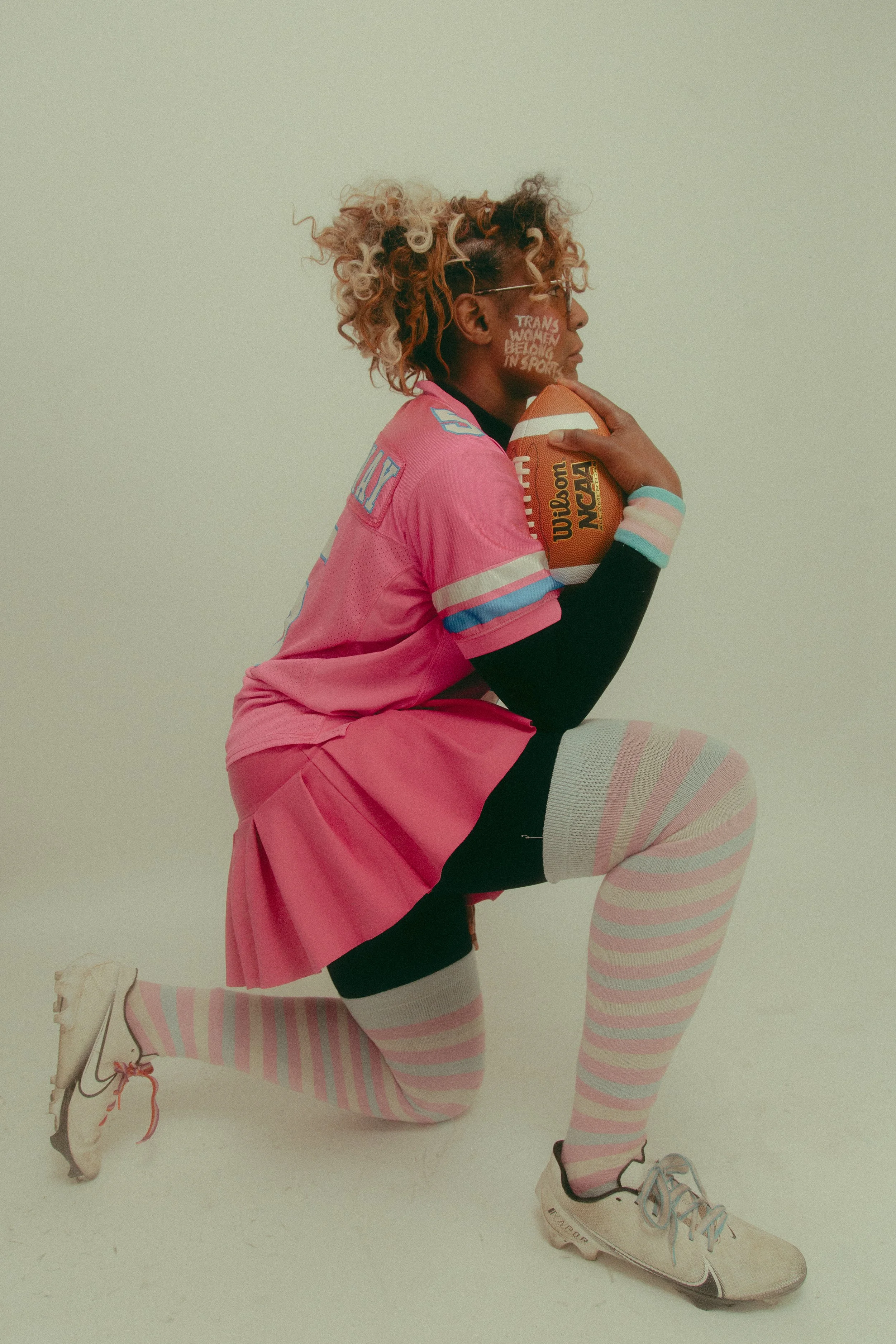Trans Women Belong in Sports. Period.
The other week, I had the incredible honor of doing a photoshoot with Karleigh Chardonnay Webb—a Black, trans, queer woman, activist, and journalist who is also currently playing women’s tackle football with the Connecticut Ambush. Watching her suit up, hearing her speak with raw honesty, and seeing her smile with the kind of joy that can only come from finally being seen, reminded me why this conversation is so urgent.
Trans women belong in sports. Period.
Trans women are women. Full stop. And yet across the U.S. and around the world, laws are being passed that say otherwise.
The White House released an executive order claiming to “keep men out of women’s sports”—a phrase that may as well be ripped from the playbook of anti-trans hate groups. It doesn’t protect women. It polices them. It reinforces the idea that womanhood is defined solely by what’s between your legs at birth, not by your identity, your experience, your life.
The UK has recently taken a similarly dangerous step backward. The UK Supreme Court ruled that, under the Equality Act, the word “woman” refers only to people assigned female at birth. Let’s be clear—this ruling doesn’t just harm trans women. It harms all women. It harms trans men. It harms nonbinary people. It harms anyone who doesn’t fit into the neat, binary box society has tried to trap us in.
To define womanhood through biological determinism is to erase the diversity and depth of women’s lives. This isn’t about fairness. This is about control—about who gets to exist in public spaces, who is seen, who gets a voice.
Karleigh’s presence on that football field is resistance. It is joy. It is legacy.
She grew up in the Midwest. “I played football. I went to church. I did all the things they said a boy should do,” she said. “Football was a place to hide—but now it’s where I’m seen.”
And she is seen. By her teammates. By her sisters.
“One of my first games, my teammate said, ‘You ready baby girl?’ To hear that on a football field—that was everything.”
So many people frame this conversation around fairness—but fairness for who? Karleigh puts it plainly: “It doesn’t have to do with fairness. It’s about them being uncomfortable with me in this space.”
“We’re not coming near your kids,” she said. “What they’re really trying to say is: keep kids cis.”
This discomfort, this fear, is rooted in a twisted obsession with gender rules. Rules that say women’s bodies must look and function a certain way. Rules that say kids must grow into the gender they were assigned. Rules that kill joy. Rules that kill people.
Karleigh’s story shatters those narratives. And her love for the game is as real as it gets. She’s literally paying to play. She’s out there in full gear, giving it her all—not because it’s easy, but because it’s who she is. I’ve never seen someone so happy to be doing something they love. So why do so many people want to rip that happiness away?
“We know our lives better than you do,” she told me. “Trust me. I wouldn’t do this if this wasn’t who I was.”
And she’s not doing it alone. Her team has embraced her. “This is our sister,” they tell her. She told me with pride,“I’m finally a part of the sisterhood.”
“Football has given me the opportunity to be a part of not just a team—but a sisterhood. And that means the world to me. I will ride and die for every girl on that team.”
Trans athletes like Karleigh aren’t threats to women’s sports—they are a testament to what sports are supposed to be: a place of unity, of challenge, of joy. She’s not only playing for herself. She’s playing for the next generation of trans kids who are watching, wondering if there’s a place for them too.
Her message to trans kids that want to play sports…
“Hit that field and hit it hard. Just go.”
And she’s got a message for parents:
“If your kids wanna play, you’re going to be their biggest teammate. You set the tone. If you set the tone of inclusion, others will follow. People respond to courage. That’s what my dad told me. And it takes courage to do what’s right. I want this to be an example for families that share my skin tone. Black cis straight folk need to see black queer folk. You need to see these people living out in the world, not in the casket. Ask questions and listen. Because we’re all trying to be liberated from this nastiness that we’re living in right now. What’s happening to me, can happen to anyone else. It’s just a matter of where on the hierarchy you are. The only way we’re gonna have liberation is together.”
Karleigh is fighting to be seen. Fighting to be heard. And she’s doing it with grace, resilience, and love. Her story reminds us that liberation is collective. That we all need to ask: What have I done to contribute to the world we’re in?
We need to stop pretending that this fight is about fairness. It’s about fear. It’s about control. It’s about upholding systems of patriarchy and exclusion that harm everyone—not just trans people.
So listen to your trans kids. Listen to the trans people in your life. Learn from them. Share their stories — share Karleigh’s story — because she deserves to play the sport she loves just like any other woman on that field.




